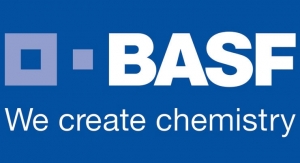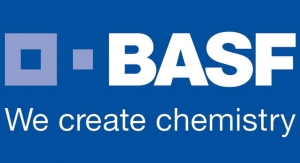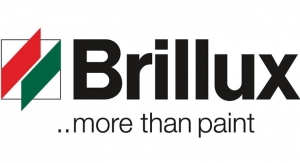10.04.17
Featured speaker and Labor Attorney John Cruickshank of Alaniz Schraeder Linker Farris Mayes LLP will explore current labor and employment policy issues confronting the metal construction industry, and the overall construction industry, at METALCON on Oct.18 and 19, 2017 at the Las Vegas Convention Center.
With a whole host of labor and employment issues facing the industry, Cruickshank said the biggest headache for management today is handling the increase in disabled and injured workers seeking accommodation and light-duty.
“More and more employees are showing up to work with medical conditions, which affect their ability to perform their jobs,” he said. "Some conditions, such as many forms of cancer, qualify as disabilities under the Americans with Disabilities Act; other conditions, such as many sports injuries, do not. We have to determine which employees to accommodate and how, and if we accommodate, do we offer light duty or different positions?”
“No employer wants to be in the position of having to create jobs, but if we offer employees light- duty work, we have to consider both their safety and the safety of others, as well as our obligation to then offer similar light-duty accommodations to others,” Cruickshank continued. “And then, add the further complexity of employees on workmen’s comp wanting to come back early into light-duty positions; it can create a lot of problems.”
Additionally, Cruickshank will cover essential labor practices for your business including having the proper employment complaint, reporting and investigatory procedures, and ensuring all office staff is fully covered.
“Without a written and effective complaint procedure, you risk losing important affirmative defenses in any lawsuit,” he said.
Other essentials include proper document retention—knowing how long to hold on to documents and when to get rid of them.
“Understand when you are no longer required to keep something and then think about whether you should,” said Cruickshank, adding that it "depends on the type of record and the state you are operating in."
Furthermore, he will present approaches to better employment discipline and how to use discipline more effectively.
“We don’t want to fire people,” he said. “We want to focus on education and deterrence, rather than enforcement and termination. Firing and then having to hire and train a replacement person is a loss for everyone. Employees need to be well informed and coached on key policies.”
Regarding immigration reform, Cruickshank believes that while DACA (Deferred Action for Childhood Arrivals) gets all the headlines, it is the steps towards mandatory electronic employment verification and reductions in all forms of immigration that will have the greatest impact on contractors.
“Expect a shortage of labor, which will drive pressure on wages and retention, as well as new methods of innovation and automation; however, automation brings its own unique set of hiring challenges,” he said.
Cruickshank will also discuss important state-specific issues, including changes to the minimum wage and new paid sick leave requirements, which affect certain contractors.
“The Federal Government is not increasing the minimum wage, but the states are doing it for them,” he said. “You need to know where your state is going on minimum wage and adjust your budget accordingly.”
Pictured: John Cruickshank/Photo courtesy alaniz-schraeder.com
With a whole host of labor and employment issues facing the industry, Cruickshank said the biggest headache for management today is handling the increase in disabled and injured workers seeking accommodation and light-duty.
“More and more employees are showing up to work with medical conditions, which affect their ability to perform their jobs,” he said. "Some conditions, such as many forms of cancer, qualify as disabilities under the Americans with Disabilities Act; other conditions, such as many sports injuries, do not. We have to determine which employees to accommodate and how, and if we accommodate, do we offer light duty or different positions?”
“No employer wants to be in the position of having to create jobs, but if we offer employees light- duty work, we have to consider both their safety and the safety of others, as well as our obligation to then offer similar light-duty accommodations to others,” Cruickshank continued. “And then, add the further complexity of employees on workmen’s comp wanting to come back early into light-duty positions; it can create a lot of problems.”
Additionally, Cruickshank will cover essential labor practices for your business including having the proper employment complaint, reporting and investigatory procedures, and ensuring all office staff is fully covered.
“Without a written and effective complaint procedure, you risk losing important affirmative defenses in any lawsuit,” he said.
Other essentials include proper document retention—knowing how long to hold on to documents and when to get rid of them.
“Understand when you are no longer required to keep something and then think about whether you should,” said Cruickshank, adding that it "depends on the type of record and the state you are operating in."
Furthermore, he will present approaches to better employment discipline and how to use discipline more effectively.
“We don’t want to fire people,” he said. “We want to focus on education and deterrence, rather than enforcement and termination. Firing and then having to hire and train a replacement person is a loss for everyone. Employees need to be well informed and coached on key policies.”
Regarding immigration reform, Cruickshank believes that while DACA (Deferred Action for Childhood Arrivals) gets all the headlines, it is the steps towards mandatory electronic employment verification and reductions in all forms of immigration that will have the greatest impact on contractors.
“Expect a shortage of labor, which will drive pressure on wages and retention, as well as new methods of innovation and automation; however, automation brings its own unique set of hiring challenges,” he said.
Cruickshank will also discuss important state-specific issues, including changes to the minimum wage and new paid sick leave requirements, which affect certain contractors.
“The Federal Government is not increasing the minimum wage, but the states are doing it for them,” he said. “You need to know where your state is going on minimum wage and adjust your budget accordingly.”
Pictured: John Cruickshank/Photo courtesy alaniz-schraeder.com










